If you find yourself in a situation where you need to issue an eviction notice due to non-payment, it's essential to approach the matter with clarity and professionalism. Crafting a well-structured letter can help convey your intentions and ensure that the process is smooth for both parties involved. An eviction notice serves not only as a formal reminder of financial obligations but also sets the tone for any potential future interactions. Curious about how to create an effective eviction notice? Read on for a comprehensive template and essential tips!
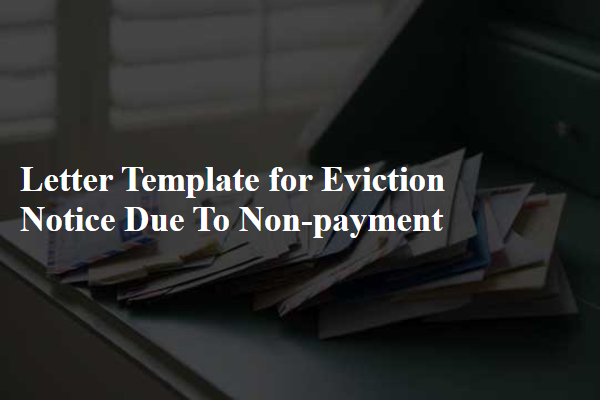
Tenant Information
A formal eviction notice for non-payment is a crucial document in the landlord-tenant relationship. It's essential to include specific details for clarity and legal compliance. The notice should identify the tenant's full name, including middle initials, and the address of the rental unit, such as "123 Maple Street, Apartment 4B, Springfield." The amount of unpaid rent should be explicitly stated, for example, "$1,500 for the month of September 2023." Furthermore, the notice must clearly indicate the time frame allowed for payment or vacating the property, such as "10 days from the date of this notice." Legal references, such as citing the applicable section of state landlord-tenant law, can strengthen the notice's validity and provide the tenant with knowledge of their rights and obligations. Accurate documentation of prior communications regarding the rent, such as emails dated August 15 and September 5, should also be included to demonstrate attempts to resolve the issue before eviction proceedings.
Landlord Details
Non-payment of rent can lead to significant legal actions and financial consequences for tenants. In various jurisdictions, eviction notices typically require the landlord (or property manager) to include specific details such as their name, address, and contact information to ensure proper communication. Timelines for delivering the notice may vary, often ranging from three to thirty days, depending on local laws and lease agreements. In some areas, such as California, tenants may have a right to remedy the non-payment by paying the overdue rent within a specified period before eviction proceedings begin. Different states also mandate whether the notice needs to be served in person, via certified mail, or can be taped to the entrance of the rental property, impacting the effectiveness of eviction processes. Legal documentation, proper formatting, and compliance with local housing regulations are essential elements for the eviction notice to be considered valid and enforceable in a court of law.
Description of Payment Default
Tenants who consistently fail to meet their rental obligations face serious consequences. For instance, a tenant in New York City (with specific rent due by the 1st of each month) may face eviction proceedings after being more than five days late on their rent payment. A typical lease agreement stipulates that a rent payment default occurs when the tenant has not submitted the agreed amount, such as $1,500, by the clearly defined deadline, leading to increased financial burden for landlords. Failure to pay rent for over thirty days can invoke legal actions under local housing laws. Documentation, including late notices and payment records, may be collected as evidence of non-payment for proceedings in housing court, which can significantly impact the tenant's rental history and future housing opportunities.
Legal References and Deadlines
An eviction notice due to non-payment is a legal document notifying tenants of their failure to pay rent on time, typically referencing specific legal statutes pertaining to lease agreements. The notice usually includes the amount owed, which can vary from state to state, often detailing the number of days allowed for payment--commonly ranging from 3 to 30 days--before further legal action may be taken. This document may cite local laws, such as the Residential Landlord-Tenant Act, to reinforce the landlord's rights. Proper delivery methods, like certified mail or personal service, ensure the tenant receives official notification of impending legal measures, with deadlines crucial for maintaining compliance with jurisdictional requirements. Failure to adhere to these deadlines can result in dismissal of the eviction case in court.
Instructions for Rectifying the Situation
Non-payment of rent remains a significant issue affecting landlords and tenants alike, particularly in urban areas like New York City. Rent arrears over 30 days can lead to eviction proceedings in housing courts. A landlord must provide a formal eviction notice, detailing the unpaid amount, lease violation specifics, and a deadline for compliance--usually 14 days. Such notices often reference state laws, including the New York Real Property Law SS 771, which outlines eviction processes. Tenants facing financial difficulties may have access to emergency rental assistance programs, such as the Emergency Rental Assistance Program (ERAP), allowing them to stay in their residences while resolving payment issues. Clear communication is critical during this process, emphasizing the urgency of rectifying the non-payment situation through direct payment or negotiation for a repayment plan.
Letter Template For Eviction Notice Due To Non-Payment Samples
Letter template of eviction directive for non-compliance with payment terms.
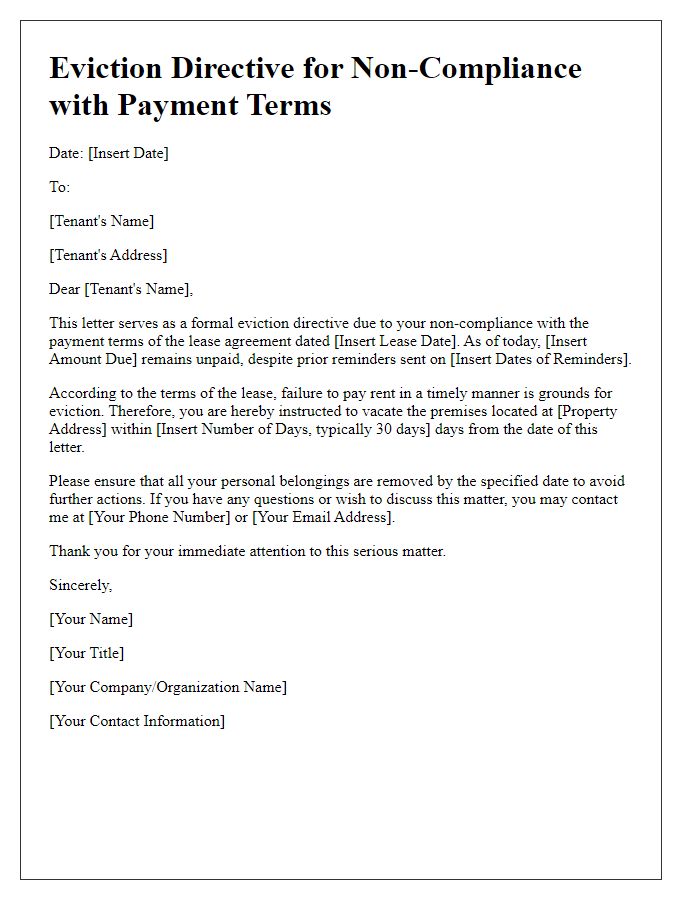

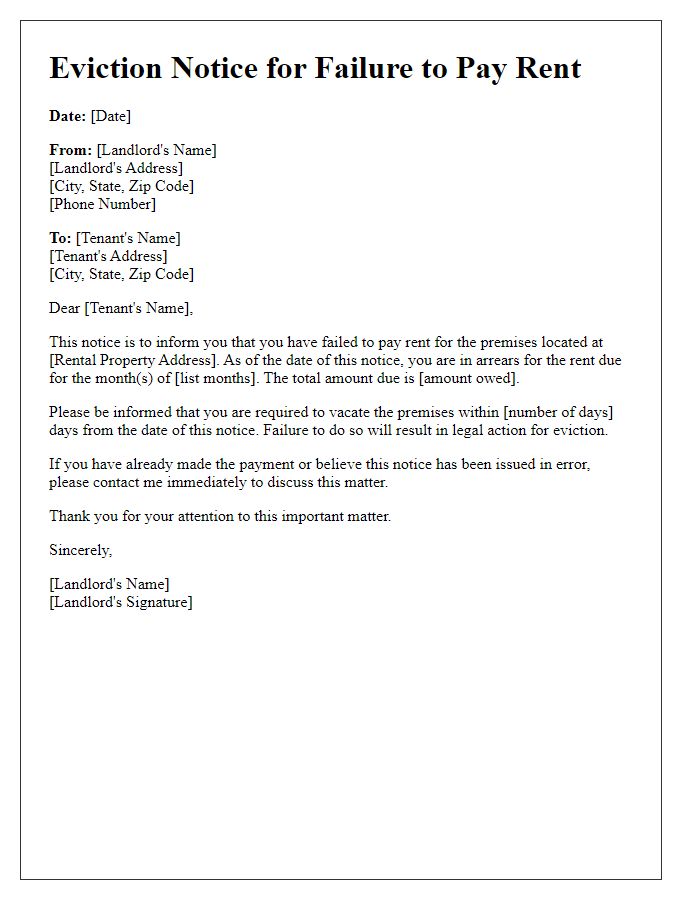
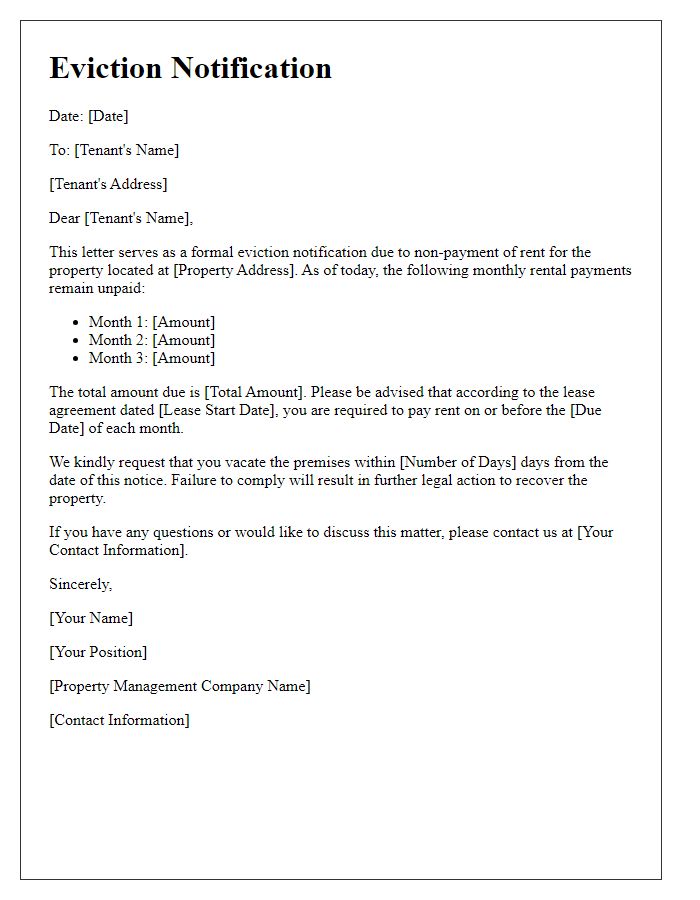
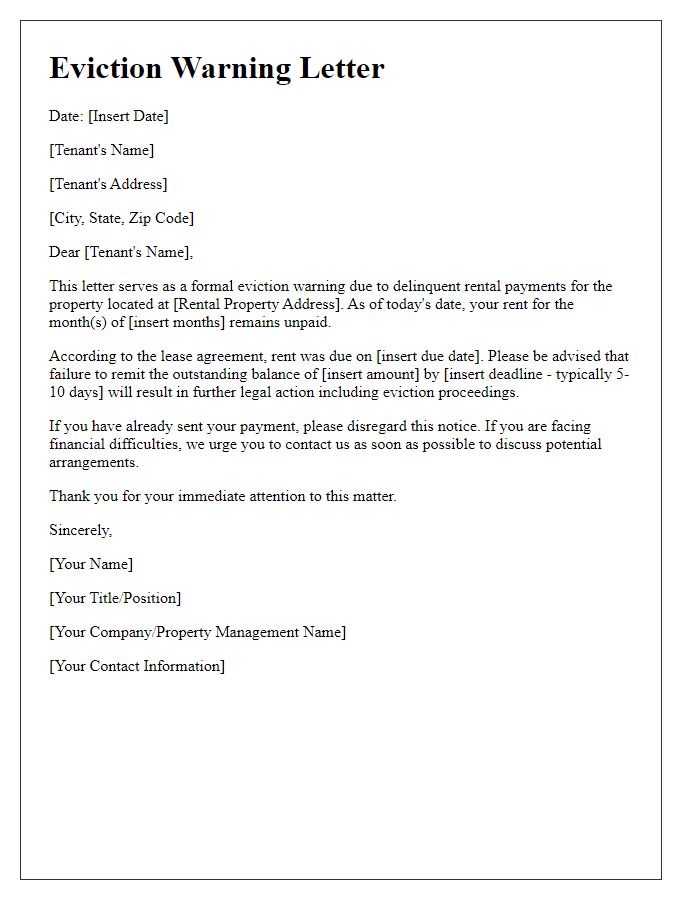
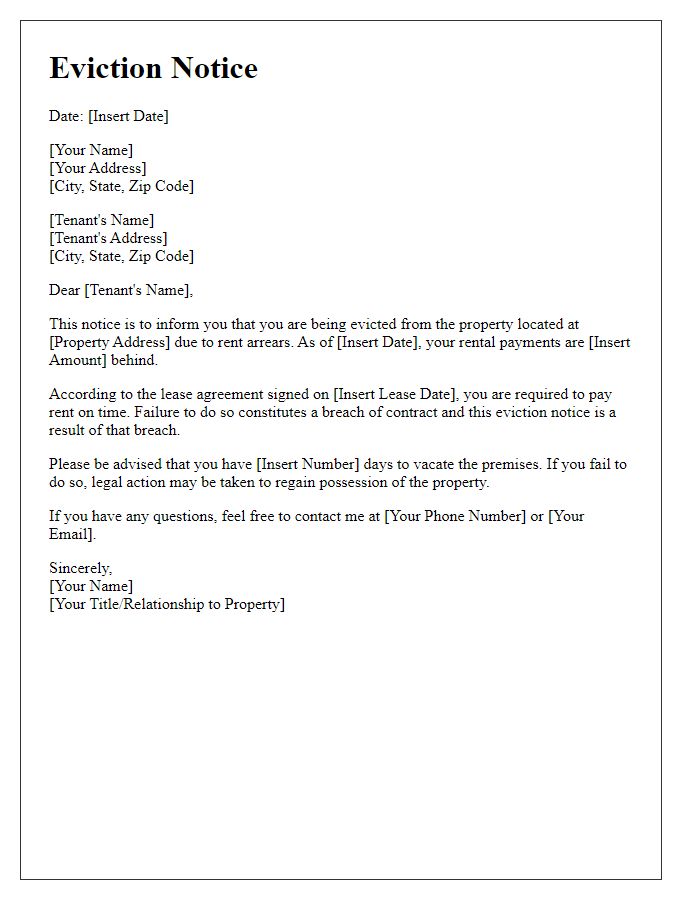

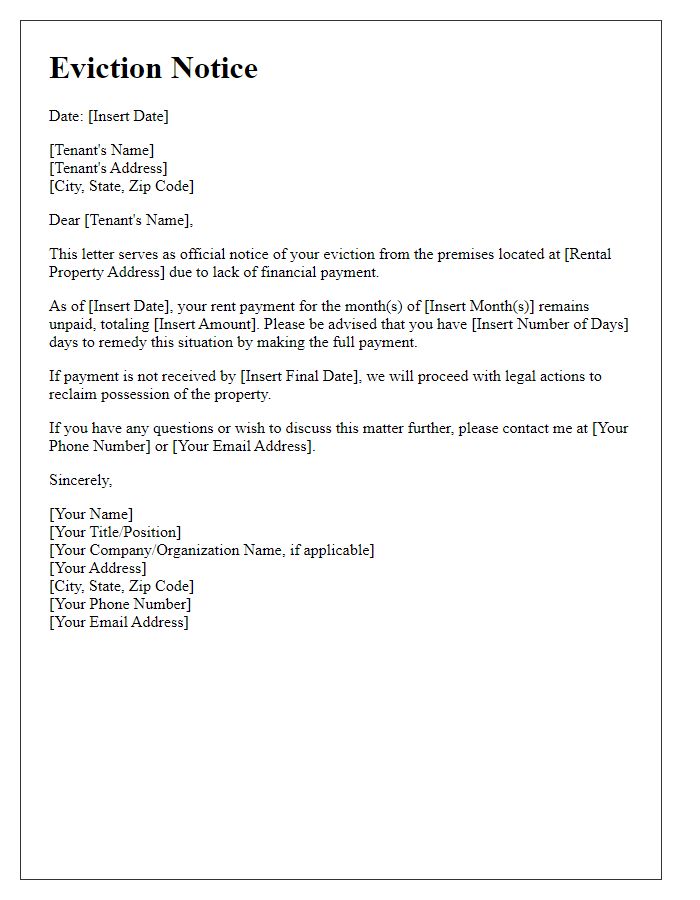
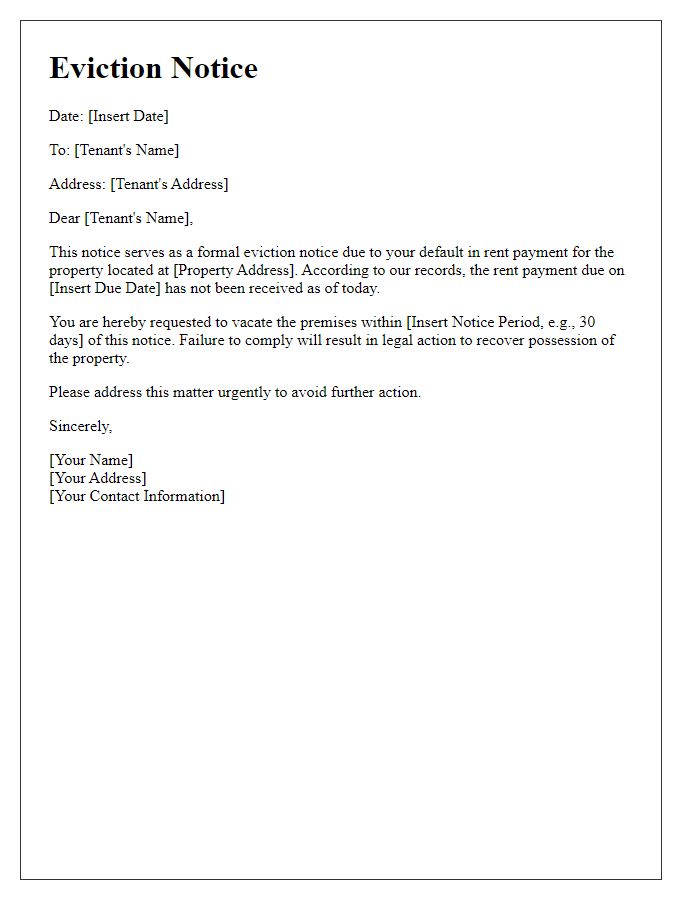
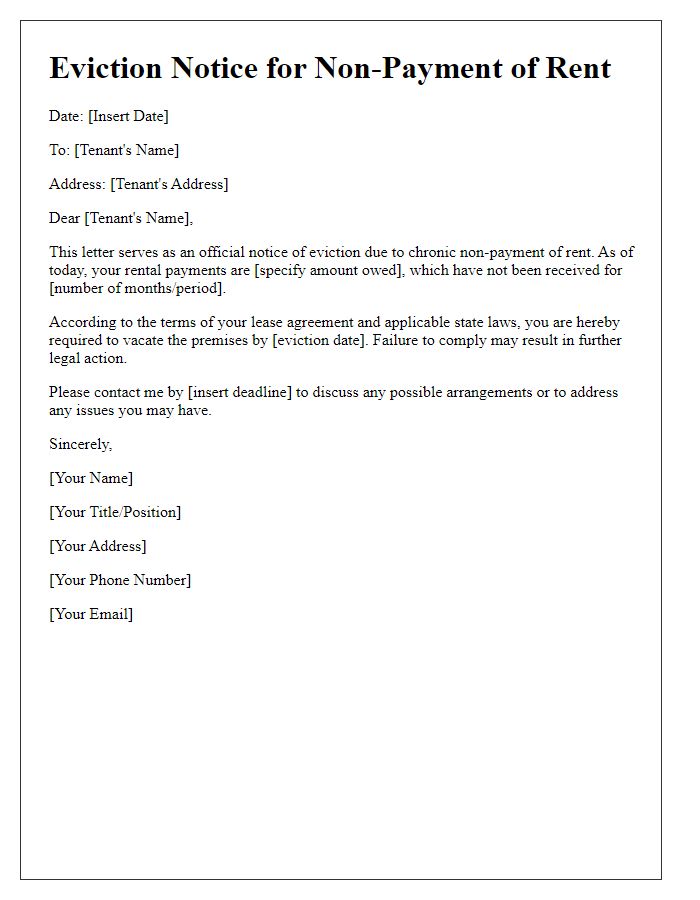
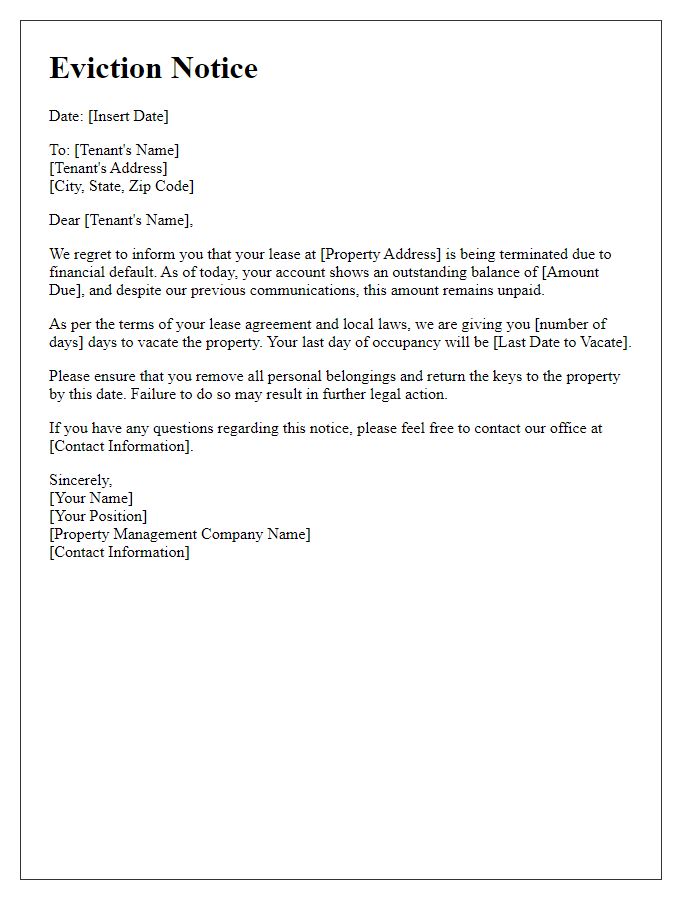


Comments